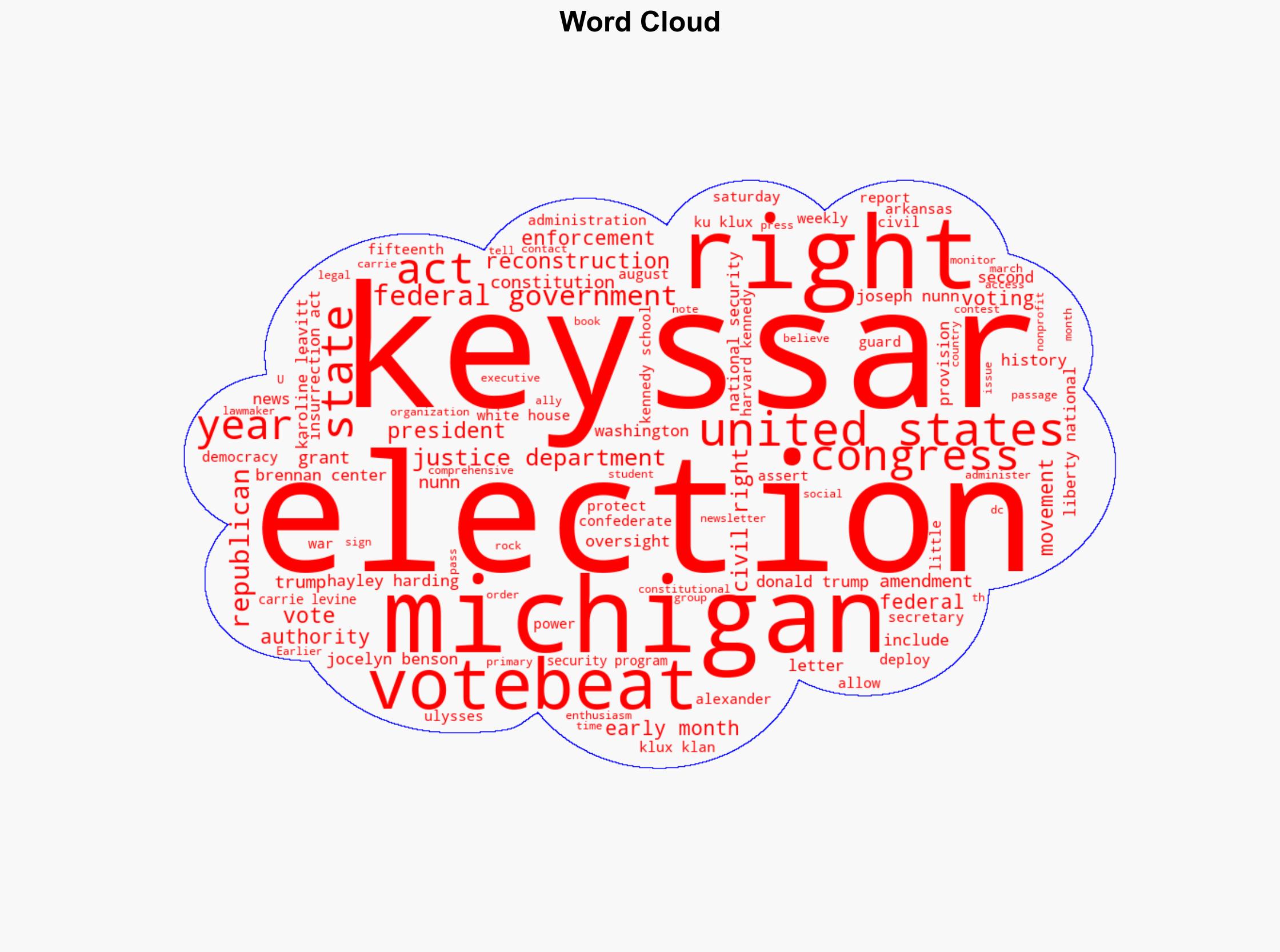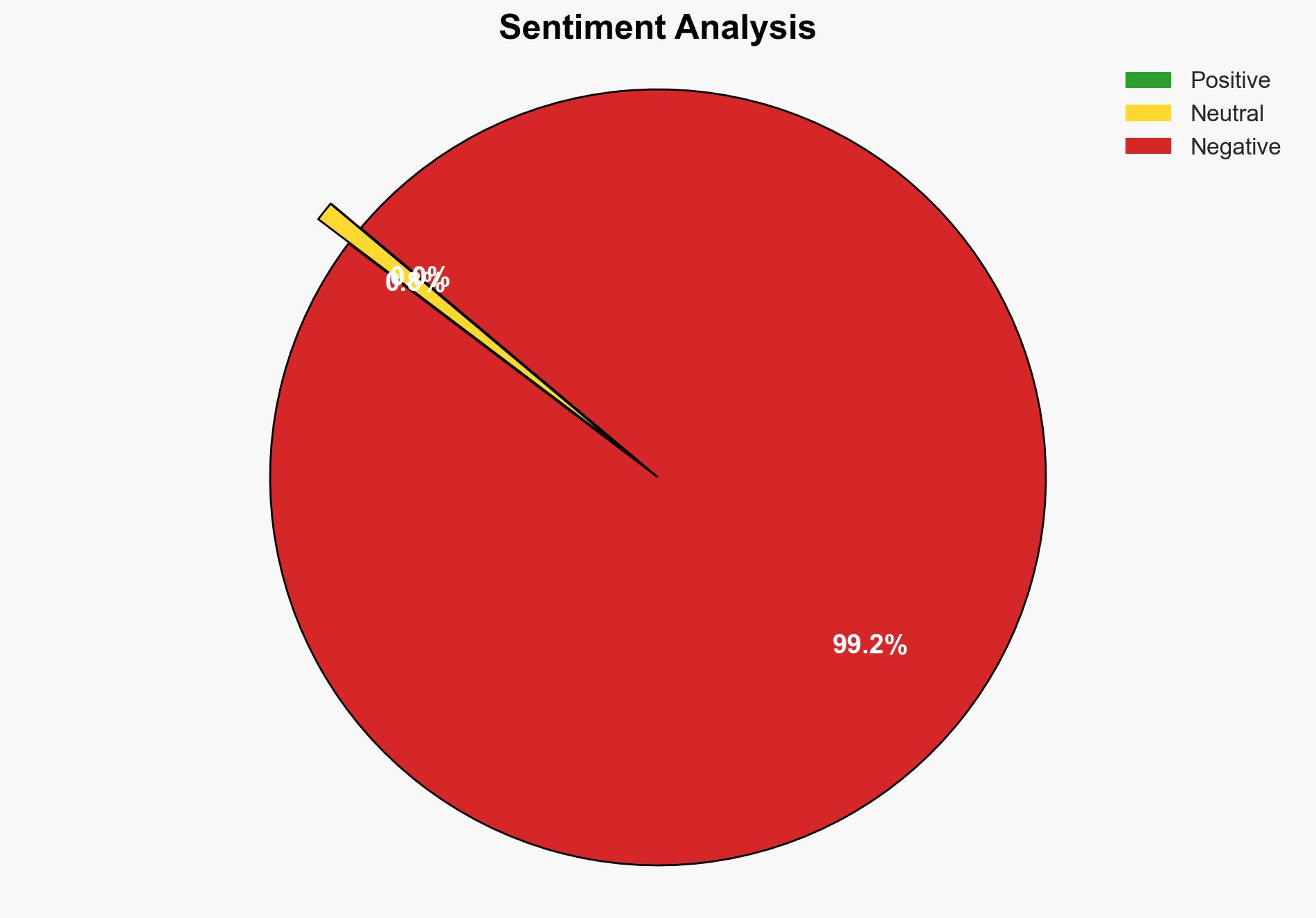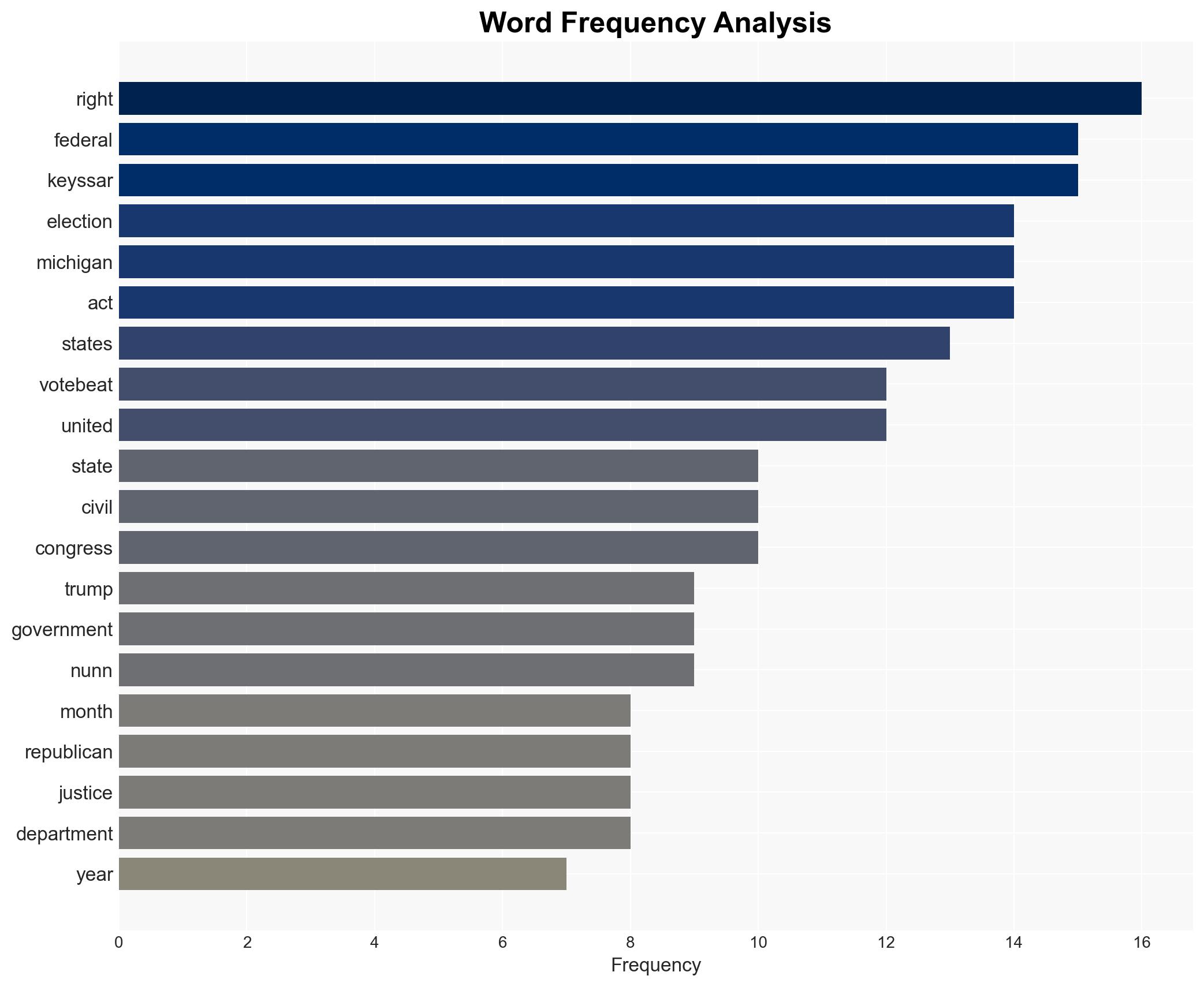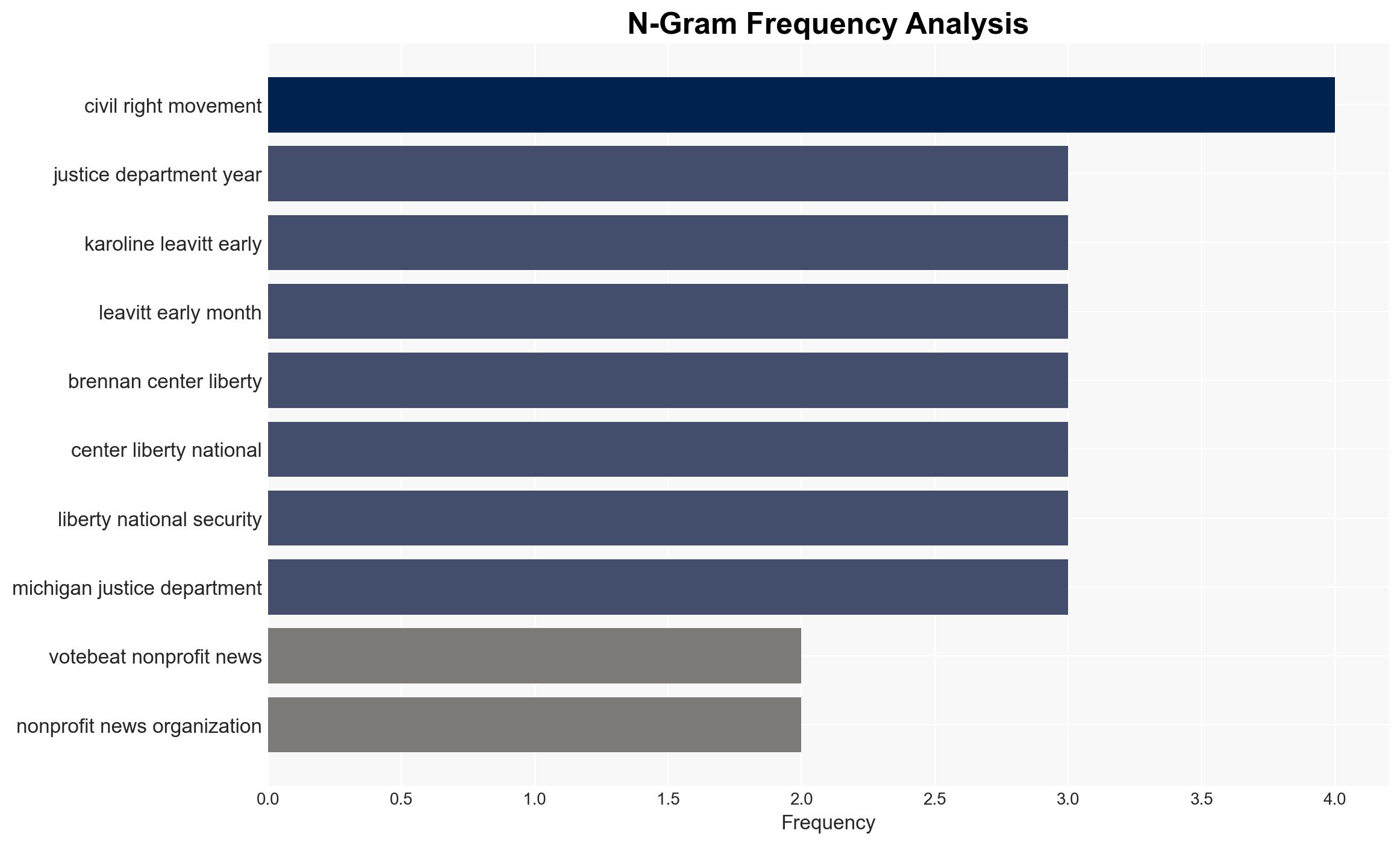A GOP request pushes the limits on federal interference in elections
Published on: 2025-11-25
AI-powered OSINT brief from verified open sources. Automated NLP signal extraction with human verification. See our Methodology and Why WorldWideWatchers.
Intelligence Report:
1. BLUF (Bottom Line Up Front)
There is a moderate confidence level that the GOP request for federal oversight in Michigan elections is primarily a strategic maneuver to influence public perception and assert federal authority over state-run elections. The most supported hypothesis is that this request is part of a broader political strategy rather than a genuine concern for election integrity. Recommended action includes monitoring political narratives and preparing for potential legal and public relations challenges.
2. Competing Hypotheses
Hypothesis 1: The GOP request for federal oversight is a strategic political maneuver aimed at influencing public perception and asserting federal control over state elections. This is supported by historical precedents of federal intervention being used as a political tool and the timing of the request aligning with broader political narratives.
Hypothesis 2: The request is a genuine attempt to ensure election integrity and address perceived vulnerabilities in the election process. This hypothesis considers the possibility of legitimate concerns about election administration and the historical context of federal oversight in protecting voting rights.
Hypothesis 1 is more likely due to the lack of specific legal authority cited in the request and the historical context of federal intervention being politically motivated.
3. Key Assumptions and Red Flags
Assumptions: It is assumed that the GOP request lacks a solid legal basis for federal intervention and that the primary motivation is political. It is also assumed that the current legal framework does not support such comprehensive federal oversight without significant legal challenges.
Red Flags: The lack of clarity in the GOP’s request regarding legal authority and specific oversight mechanisms raises concerns about the true intent. The historical use of federal intervention as a political tool suggests potential for manipulation.
4. Implications and Strategic Risks
The request could escalate political tensions, leading to increased polarization and potential legal battles over state versus federal authority in election administration. There is also a risk of undermining public confidence in the electoral process, which could be exploited by adversaries in information warfare campaigns. Additionally, the request could set a precedent for future federal interventions in state elections, altering the balance of power.
5. Recommendations and Outlook
- Monitor political narratives and legal developments related to federal oversight of state elections.
- Prepare for potential legal challenges and public relations strategies to address misinformation.
- Best-case scenario: The request is dismissed, maintaining state control over elections and preserving public confidence.
- Worst-case scenario: Legal battles ensue, leading to increased polarization and potential federal overreach.
- Most-likely scenario: The request generates political discourse but results in limited legal action or policy change.
6. Key Individuals and Entities
Donald Trump, Jocelyn Benson, Karoline Leavitt, Alexander Keyssar, Joseph Nunn.
7. Thematic Tags
Structured Analytic Techniques Applied
- Cognitive Bias Stress Test: Expose and correct potential biases in assessments through red-teaming and structured challenge.
- Bayesian Scenario Modeling: Use probabilistic forecasting for conflict trajectories or escalation likelihood.
- Network Influence Mapping: Map relationships between state and non-state actors for impact estimation.
Explore more:
National Security Threats Briefs ·
Daily Summary ·
Support us





